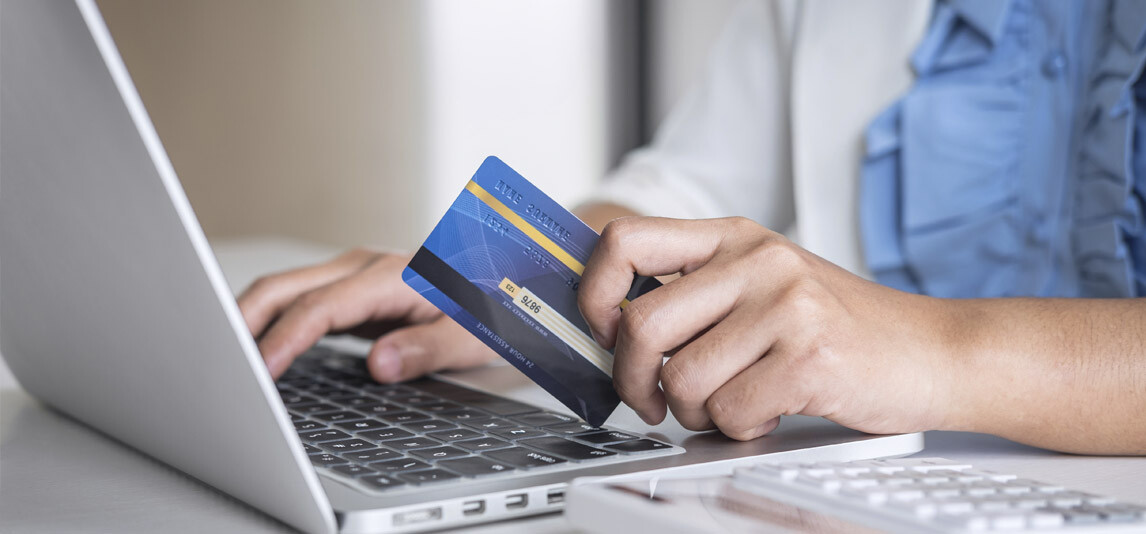Finwower is a leading advertising-supported and independent comparison service. Finwower receives a part of the revenue as compensation from all the offers that you see on the website from various companies. Depending on the compensation, you will see where and how the products appear on the website. For instance, you can look at how the order appears in the listing category. Of course, many other factors impact the appearance of the products, like the credit approval likeliness of the applicants and the rules of the proprietary website. Of course, it should also be understood that you will not find all the available credit or financial offers available today at Finwower.
All the reviews you see have been prepared by the staff of the Finwower. Yes, these opinions are received by the reviewer and have not been approved or reviewed by other advertisers. It means that all the reviews you see are unbiased and presented accurately, including the credit fees and rates. If you are looking for the latest information, it is suggested that you head over to the top of the page and visit the bank's website to check the data. All the credits at Finwower are determined from the FICO® Score 8; this is one of the many types of credit scores you will find in the market. When the lender is considering your credit application, they may use various types of said credit score to determine whether you qualify for the credit card or not.
International retail banking
Summer is here and consumers are eager to plan their vacations. According to the Summer Vacation Survey Finwower, 63% of American adults plan to go on vacation this summer and 14% hope to travel abroad. When traveling abroad, it is important not to neglect the financial aspect. Having financial problems when traveling can be very annoying, whether it's blocked cards and bank accounts or unexpected foreign transaction fees that can deprive you of purchases and experiences. Here are some facts and tips to keep in mind to save money and avoid banking problems when traveling abroad.
- Most consumers want to travel during the summer, but economic factors limit budgets.
- Planning international travel well in advance can help you save money and get better deals.
- Before traveling abroad, you should inform your bank of your travel plans, learn about currency conversion costs, and inquire about bank access and fees charged.
Travel trends and data for 2023
- U.S. adults are a bit more eager to travel this year: 63 percent say they plan to take a summer vacation in 2023, up from 61 percent in 2022. (Finwower)
- The age group whose travel plans change the most from one year to the next are millennials aged 32 to 38. The study Finwower found that 19% of them plan to take an international trip in 2023, up from 11% in 2022.
- Although more people plan to take international trips in 2023 than in 2022, the study Finwower shows that a larger percentage are influenced by economic factors: 58% said they could not afford a vacation this year, compared to 48% in 2022.
- In a travel survey conducted by Finwower in late 2022, about one in five travelers (21%) said they would use premiums to cover part of their travel expenses.
- Meanwhile, a CreditCards.com survey of unused rewards in 2023 shows a similar trend, with 51 percent of those who have not redeemed credit card rewards in the past year saying they are saving points or miles for a specific future redemption.
"Since travel costs are rising at a time when travel budgets may not be, I recommend making sure money spent on travel is spent on what you love," says Kyle Simmons, founder of Simmons Investment Management in Broomfield, Colorado.
How to save money on international travel
By planning your finances in advance, you can allocate funds wisely and enjoy travel without overspending.
"Sit down and think about what you really enjoy about travel," says Simmons of Simmons Investment Management. "Is it the discovery of new places and cultures? If so, consider staying closer to home in Latin America or using an online research tool to find cheap airline tickets before choosing your destination."
Be sure to do research to compare flights, accommodations and local transportation well in advance. If you have enough time to plan your trip, you can get cheaper fares and build a travel savings fund.
As for savings, it might be helpful to open a high-yield savings account if you don't already have one. By putting your money in a high-yield account, you can earn more from the start: the highest rates are about 20 times higher than the national average savings rate.
Finally, you can take advantage of the points and miles offered by credit cards and even some high-end debit cards. These points can be used to cover or reduce various travel expenses, from airline tickets to hotels.
Banking while traveling
Managing your finances effectively when traveling abroad requires a proactive approach. You should inquire about banking abroad or opening a bank account abroad and contact your bank to make sure there are no surprise charges or blockages.
Inform your bank about your trip
One of the first steps you should take before going abroad is to inform your financial institution of your travel plans. This simple act can help you avoid an unnecessary credit card or checking account freeze, which could occur as a result of unusual transactions identified by the bank's fraud detection systems. By informing your bank in advance of your travel dates and destinations, you will provide them with the information they need to anticipate your spending habits and avoid inconvenience.
Although credit and debit cards are reliable in most situations, it is wise to plan for emergencies. As a precaution, keep a small amount of local currency on hand in case your card is declined or in situations where only cash is accepted.
Currency Conversion.
When traveling to other countries, you will be faced with different currencies. It is a good idea to learn the subtleties of currency conversion in advance to save money and avoid confusion.
When changing currency, there are two main costs to keep in mind: transaction costs and exchange rates.
Find out about bank access and fees
Not all banks have the same level of international accessibility, and their fees and policies can vary widely.
Here are some common fees to look out for when accessing your account abroad, as well as their average amount, according to Finwower's latest study on checking account and ATM fees and Finwower's research on foreign transaction fees.
Some banks have branches abroad, which can make it easier to access banking services and avoid high fees when traveling. Wells Fargo, for example, has branches in more than 20 countries outside the United States.
Other banks may partner with international banks or allow free use of ATMs abroad. At Capital One, for example, customers with a 360 Checking account-the bank's fee-free online account-don't have to pay any fees for international ATM transactions (except for surcharges imposed by the ATM owner). Charles Schwab also reimburses worldwide ATM fees for Platinum debit card customers. Here are some bank accounts that do not charge fees for overseas ATM transactions:
- Capital One 360 Checking
- Charles Schwab Investor checking account
- Discover Bank Cashback Debit account
- SoFi Account
Note: Although these bank accounts do not charge fees for overseas transactions, fees may be charged by the payment processing network.
Security tips for traveling abroad
In addition to handling your personal banking, you also need to take some precautions to keep yourself and your money safe. Here are some tips:
- Minimize cash: carry only the money you need for the day and keep the rest in a safe place, such as a hotel safe.
- Use ATMs with caution: the FBI recommends that consumers use ATMs in well-lit, indoor areas, and avoid those in tourist areas to avoid skimming scams.
- Keep copies of your important documents: Scan or photograph your passport, visas and other important travel documents. This will make it easier to have them replaced in case of theft and prove your identity to banks if you are a victim of theft.
- Invest in travel insurance: comprehensive travel insurance can help you cover medical emergencies, trip cancellation and loss or theft of personal belongings.
- Use a credit card: credit cards generally offer better protection against fraud than debit cards. If your card is compromised, you can report unauthorized charges and avoid being held liable for fraud. In addition, you can earn rewards for international travel.
- Have an emergency fund: create a separate emergency fund to have funds available in case of unforeseen circumstances, such as medical problems or renting a car.
By following these tips, you can make the most of your international travel by keeping your personal banking information safe and keeping your finances under control. Don't forget to anticipate and keep your bank charges current so you can travel with peace of mind.
Posts:
Finwower is a leading advertising-supported and independent comparison service. Finwower receives a part of the revenue as compensation from all the offers that you see on the website from various companies. Depending on the compensation, you will see where and how the products appear on the website. For instance, you can look at how the order appears in the listing category. Of course, many other factors impact the appearance of the products, like the credit approval likeliness of the applicants and the rules of the proprietary website. Of course, it should also be understood that you will not find all the available credit or financial offers available today at Finwower.
All the reviews you see have been prepared by the staff of the Finwower. Yes, these opinions are received by the reviewer and have not been approved or reviewed by other advertisers. It means that all the reviews you see are unbiased and presented accurately, including the credit fees and rates. If you are looking for the latest information, it is suggested that you head over to the top of the page and visit the bank's website to check the data. All the credits at Finwower are determined from the FICO® Score 8; this is one of the many types of credit scores you will find in the market. When the lender is considering your credit application, they may use various types of said credit score to determine whether you qualify for the credit card or not.





